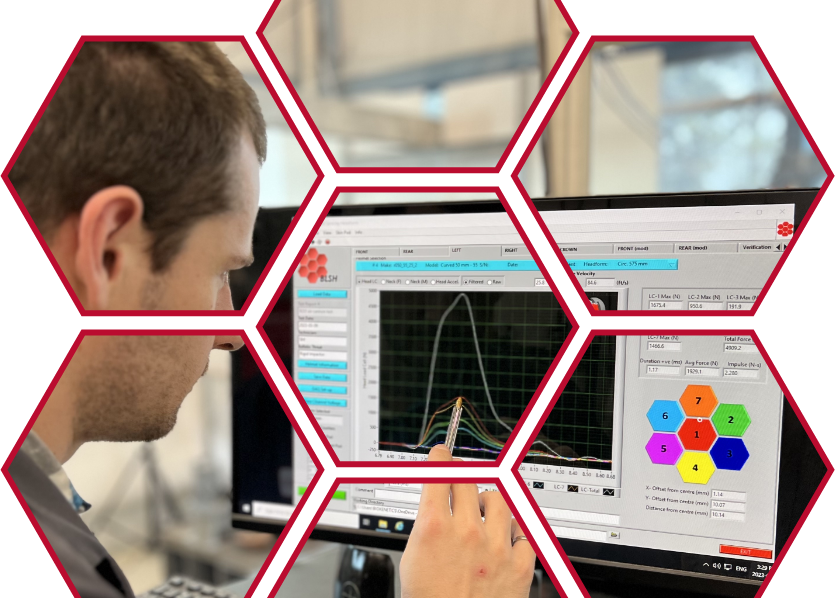The use of unmanned aerial vehicles (UAV) has become increasingly prevalent in both private and commercial spaces. With drones continuing to push the boundaries on our current understanding of their capabilities and operating environments, ensuring the consistent evolution of relevant safety guidelines is essential to risk mitigation. At Biokinetics, we know firsthand just how important proactive, thorough assessment of drones in flight, and the hazards they pose, are to prevent serious bodily injury.
Below, we’ll highlight just a few of the many reasons why standardized testing and global safety regulations are important for safe drone operation. Read on to learn more!
Navigating Regulatory Compliance
Commercial drone operators are subject to a wide range of evolving regulations and standards due to their capacity to cause harm upon system failure or during unintended strike with persons. Testing to safety performance standards helps to alleviate collateral damage concerns and ensures that drones are compliant with the civil aviation authority regulations that address these risks. Biokinetics’ testing protocol, also known as a “Method of Compliance”, assesses their compliance to the
FAA regulatory requirements with confidence and speed. The protocol explores potential impact scenarios with people to assess injury risks to the head and neck, being associated with higher risks of mortality. Similar performance based approaches have been adopted or are in the process of being adopted by civil aviation authorities such as Canada with their RPAS regulations and Europe with the JARUS
SORA approach.
Mitigating Operational Risks and Liability
Drones operate in diverse, often rapidly evolving environments. Constantly changing flight variables pose an increased level of operational risks, including accidental collisions and equipment failure. By subjecting drones to rigorous testing scenarios that simulate real-world conditions, Biokinetics enables operators, manufacturers and drone modifiers to identify vulnerabilities and implement risk mitigation strategies proactively to reduce risk, ensure safe deployment and to limit their liabilities.
Public Trust and Confidence
UAVs utilize leading-edge technology, and while the operators are often excited about the convenience and potential they hold to accomplish their intended tasks, it is crucial to build confidence with the public by demonstrating a drone’s ability to adhere to the most current safety standards and regulatory requirements. Whether a UAV is used for deliveries, as a first response in emergency calls, surveying, photography, recreation or other purposes, showcasing compliance helps alleviate the worries of stakeholders and public members alike while complying with mandatory regulations.
Through accredited testing processes (i.e. ISO 17025) and rigorous quality assurance measures, Biokinetics helps to demonstrate that the drones meet the highest safety standards, instilling confidence in the operators, regulators, and consumers alike.
Fuelling Innovation and Advancement
While standardized testing is crucial for safety, it’s equally important for innovation and advancement to meet industry’s and the public’s needs. As the prevalence and extensive use of drones is advancing, the field has plenty of room for evolution in terms of their payload capacity, flight times, flight speed, autonomous navigation aids, and all the inherent limitations that they bring.
At Biokinetics, we are proud to promote safety and excellence in future product iterations by ensuring our testing protocols remain at the forefront of technological advancements for facilitating the development of safer, more efficient, and more capable drones that meet the evolving needs of diverse industries. Through ongoing research and collaboration with industry partners, Biokinetics continues to support innovation and helps to safely drive the next generation of commercial drone technology forward.
Laying the Groundwork for Drone Safety
As drone technology continues to evolve, understanding and assessing risks accurately, and with relevance, has become more important than ever. At Biokinetics, we know that one of the best ways to reduce impact injuries is through the gathering and analysis of vital information that allows informed decisions to be made with confidence. We offer full-scale drone testing and assessment with our
Drone Safety Lab services, accident reconstruction services, ballistics testing, injury prevention assessment, injury biomechancs and
more.
Learn about our drone testing services, as well as our entire range of testing and consulting offerings, by
contacting our team today!

